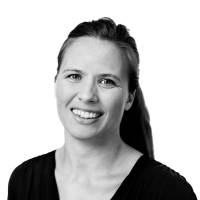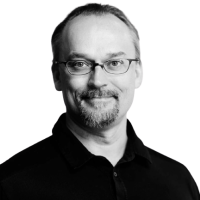Information
Neuroscience or field with potential benefit for neuroscience
No more than four years post PhD. Change in research environment is required.
Up to DKK 2.4 million over three years
Important Dates
Contact
LF Postdocs
Postdoctoral training plays an important role in developing talent. The Foundation considers change in research environment of paramount importance for establishing a solid basis for a future independent research career.
About the grant
The Lundbeck Foundation has a strategic goal to make Denmark a frontrunner in the field of neuroscience by funding Danish-based research that promotes a better understanding of the brain and better prevention, diagnosis, and treatment of brain disorders.
At the same time, our grants must help to ensure that Denmark has the best graduates and scientists at all career levels in the fields of biomedical, clinical and health sciences in Denmark.
The Lundbeck Foundation Postdoc Call invite applicants from any research field to submit proposals with potential short- or long-term benefits for the advancement of neuroscience and/or therapies for nervous system disorders. The Lundbeck Foundation believes that diversity strengthens science and for this reason diversity, including, but not limited to, gender and ethnic origin, is encouraged. We especially encourage scientists from groups that have been traditionally under-represented in academia, including women and scientists of diverse ethnic backgrounds, to apply.
This programme supports three types of scientists:
- Scientist who has been in Denmark for a minimum of five years and who wishes to conduct research at a research institution outside Denmark for up to 36 months (and no less than 12 months) and who plans to return to Denmark to continue their research.
- Scientist from abroad who wishes to conduct research in a Danish research environment.
- Scientist in Denmark with a minimum of one-year international research experience from during or after their PhD. Change of research environment is required.
Research theme
Advancements in neuroscience often develop from cross-disciplinary interaction, leading to novel insights into biological mechanisms, trial design, emerging technologies, etc. The grants may cover any research field with a potential short- or long-term benefit for the advancement of neuroscience and/or therapies for nervous system disorders.
The term ‘neuroscience’ is used here in its broadest sense, including medical, technical, natural and social sciences, as well as humanities.
Who can apply?
Applicants must:
- Have obtained a PhD or be able to document that they are expected to gain their PhD within six months of the application deadline (for the latter- include a letter of support from the main supervisor)
- Have obtained their PhD less than four years before the application deadline (calculated from the date on the PhD diploma). Rules for leave of absence apply[1].
Where?
Postdoc projects may be fully based in Denmark at Danish non-commercial research institutions or be based at a non-commercial research institution outside Denmark. The entire grant must be managed by a Danish non-commercial research institution.
The place(s) of employment of the applicant is decided upon between the applicant, the Danish institution managing the grant and the host(s) institution.
How much?
The Lundbeck Foundation is allocating up to DKK 40 million to this programme. The grants are worth up to DKK 800,000 per year. 10% of the budget can be reserved for project-related, indirect costs. If at least six consecutive months are spent at a foreign research institution 8% of the budget covering the period can be reserved for project-related, indirect costs at the foreign research institution. 2% of the budget covering the period can be reserved for project-related, indirect costs at the Danish host institution.
Grants cannot be used to substitute salaries covered by existing contracts. This postdoc salary must comply with the collective agreement applicable to the Danish host institution and includes centrally negotiated allowances and pension. Grants are for full-time research for two to three years.
For type 1: If at least 12 months (which may be split into a maximum of three separate visits) are spent abroad, applicants may apply for an additional DKK 100,000 as a lump sum to cover expenses associated with travel, accommodation, etc. In combination with the relocation costs, applicants with children may apply for additional support of DKK 50,000 per accompanying child per year (i.e. DKK 4166 per accompanying child per month). The DKK 100,000 relocation costs and the additional child support must be clearly stated in the budget as a separate item.
One can combine the years as best fits, e.g.:
- 3 years abroad
- 2 years abroad and 1 year in Denmark
- 2 years in Denmark and 1 year abroad
For type 2: Applicants who have not already moved to Denmark can apply for an additional DKK 50.000 as a lump sum to cover expenses associated with relocation. The lump sum must be clearly stated in the budget as a separate item.
How to apply?
You must submit your application, written in English, via the Lundbeck Foundation’s application system.
Please note that the Foundation will not consider or assess any application material that is not submitted via the application system before the deadline.
Your application must include the following:
- Research project description
- Roadmap to impact
- Description of research environment
- Publication list and CV
- Budget
- Letters of support including a short CV (2 pages) from heads of the research groups who will host the applicant in Denmark and, if applicable, abroad
- Letter of support from the Danish host institution agreeing to manage the entire grant
Further requirements, which you must comply with, can be found in the application guide and in the application form.
You are welcome to contact Senior Grant Manager Ulla Jakobsen (uj@lundbeckfonden.com), Senior Scientific Programme Manager Anette Høye (ah@lundbeckfonden.com) or Scientific Programme Director Peter Thostrup (pth@lundbeckfonden.com) if you have any questions regarding your application.
Evaluation process
The assessment process is a one-step process, handled by the Lundbeck Foundation Talent Panel.
All applications are reviewed for eligibility by the Foundation’s Grants & Prizes Department prior to involvement of the panel. Applications that do not fulfill the requirements stated in the call text and guide will be administratively rejected.
Panel members are asked to declare any conflicts of interest. Each application is assigned to three panel members, who serve as primary reviewers and present their comments to the panel before evaluating the application.
The evaluation will be based on scientific quality, career potential and host.
Scientific quality is assessed on the following criteria:
- The research project- ground-breaking nature, potential impact, scientific approach and feasibility
- The potential short- or long-term benefits for the advancement of neuroscience and/or therapies for nervous system disorders
- Expected implications and impact for human health including the feasibility of the roadmap to impact
Career potential is assessed on the following criteria:
- The applicant- research skills, scientific achievements, level of independence as a researcher, communication skills, collaborations and network
- The benefit for the applicant in choice of change of research environment
- Support and guidance of more established scientists (mentoring)
The Foundation prioritises funding for applicants based in Denmark at the time of the application deadline who wish to spend part or most of their time in international research groups.
The hosts and the host environments are assessed on the following criteria:
- Suitability for the applicant’s career development
- Commitment
- Scientific competences and facilities
If a grant from the Foundation will extend an applicant’s postdoc career beyond four years, the following will also be assessed: Competitiveness for an academic tenure track position.
The Foundation prioritises funding for applicants based in Denmark at the time of the application deadline who wish to spend most of their time in international research groups. Particularly applicants, also from fields outside neuroscience, who are applying for a postdoc in a neuroscience lab abroad.
At the review meeting, proposals are discussed and rated against the criteria for assessment of scientific quality of the proposal, including the host and the career potential of the applicant.
- Deadline for application: November 9, 2023 - 13:00 CET
- Approval of grants: Ultimo March 2024
- Earliest start: April 1, 2024
- The grant must start before December 31, 2024
What are the grant conditions?
If your proposal is successful, you must accept the Lundbeck Foundation's General Terms and Conditions for Research Grants. This grant is a personal grant.
What are the reporting requirements?
If your proposal is successful, you must submit annual scientific and financial reports to the Lundbeck Foundation. The scientific reporting will continue for three years after the end date of the postdoc grant.
For details see: For grant recipients | The Lundbeck Foundation (lundbeckfonden.com)
The purpose of the Lundbeck Foundation is to create powerful ripple effects that bring discoveries to lives through investing actively in business and science at the frontiers of their fields.
[1] The PhD seniority of applicants who have taken parental leave after gaining their PhD will be reduced by the actual number of weeks of leave multiplied by 1.5. In the case of illness or family care leave, the exact period will be deducted. The start and end dates of the parental leave or other leave periods must be stated in the applicant’s CV. The PhD seniority of applicants who have taken leave from research for their clinical postgraduate education (Klinisk Basisuddannelse) after gaining their PhD will be reduced by 12 months.

